Is ABS Material Right for You? Pros and Cons of This Luggage Material
A suitcase is truly a traveler’s best friend, so you must choose wisely! After testing and researching several luggage types, I was able to compile a solid database on many of their materials. One of them is ABS, so I’ll help you figure out whether or not it’s a good fit for you.
ABS is your best bet if you want to buy luggage on a budget for occasional travel. This type of suitcase is sturdy, lightweight, and impact resistant. Yet, if you’re looking for a heavy-duty suitcase that can withstand frequent mishandling, I’d recommend polycarbonate instead.
Continue reading to find out more about ABS luggage and how to spot a high-quality one!
What Is ABS Luggage?
If you started searching for a new travel suitcase, you might wonder, “What is the meaning of ABS luggage, and why is it a popular material for travel suitcases?” So, allow me to give you a brief overview of this material.
To begin, ABS is a thermoplastic polymer composed of the following two plastics and one rubber:
- Acrylonitrile
- Butadiene
- Styrene
As you may have guessed, the name ABS is an abbreviation for those three key components. Each of them is in charge of ABS’s main features.
For example, acrylonitrile is the one offering chemical and heat resistance. Butadiene is a synthetic rubber responsible for impact strength, and styrene boosts rigidity.
You’re familiar with this type of plastic more than you think as it’s used in countless products, including LEGOs and the majority of keycaps. It’s now extremely popular in the production of hard-shell luggage.
The reason for its popularity in suitcases is summed up in the phrase “value for money.” You see, ABS has a low production cost, making it an affordable material for people to purchase. Not only that, but the qualities available in ABS luggage are incredible for the price.
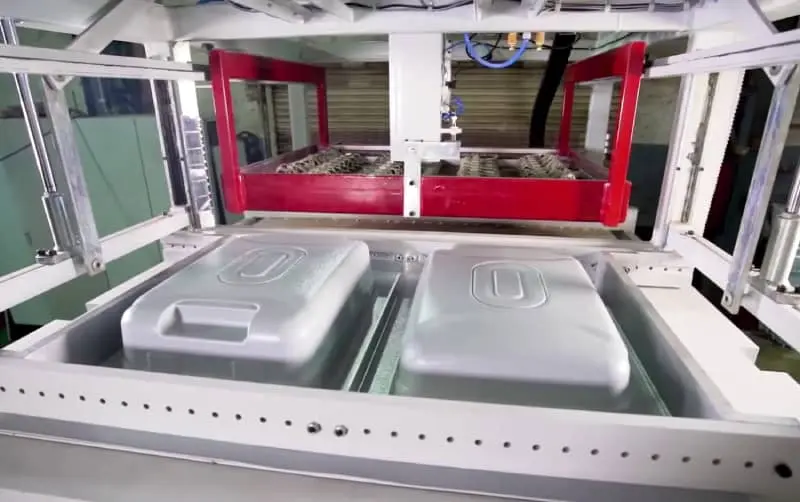
Don’t worry; I’ll go into detail about the benefits and drawbacks of purchasing this suitcase in the section below!
Pros and Cons of ABS Luggage Material
First, is ABS Luggage durable? It is, yet it’s not the most durable material. Here are its major other pros and cons to help you decide if it’s right for you:
Advantages of ABS luggage material
There are mainly four characteristics that distinguish this thermoplastic polymer:
1. Durability
Prepare to have your ABS suitcase with you for a long time. This material’s plastic blend makes it quite sturdy, and it’ll take a lot for it to break or crack.
However, if you asked me to compare it to, say, aluminum hard-shell luggage, I’d have to say ABS is less durable.
2. Lightweight
When picking a suitcase, its weight is a crucial factor for me. Because, for one thing, its weight is included in the flight’s baggage allowance, so every kilo counts.
As you may know, paying for overweight luggage can be pricey. Tell me in the comments about the most outrageous fee you’ve ever had to pay for extra weight!
Besides, dragging a heavy suitcase around can be exhausting. With ABS suitcases, you won’t have to worry about that. They’re super light and portable, making them superior to aluminum luggage at this point.
3. Impact resistance
Unlike suitcases made of low-quality plastic, an ABS suitcase won’t look deformed on the baggage carousel. This thermoplastic has a high impact resistance, allowing it to withstand casual mishandling situations, particularly those that occur at airports.
4. Affordability
ABS’s physical and mechanical properties enable it to be easily machined, which reduces manufacturing costs. Its components are also easily obtained, making ABS a widely accessible material.
All of this contributes to its affordability, as it’s actually cheaper to purchase than polycarbonate and aluminum suitcases.
RELATED:
The Pros and Cons of Aluminum Luggage: Is it the Best Choice for Travel?
Disadvantages of ABS Luggage
Moving on to the two primary negative aspects of this material:
1. Fragility in extreme temperatures
Let’s just say ABS doesn’t fare well in severe weather conditions. While researching this material, I came across an intriguing study that revealed how ABS becomes brittle at low temperatures.
This means that if your bag is constantly subjected to freezing temperatures, it’s more likely to break.
Moreover, since ABS isn’t UV resistant, it can degrade if exposed to it for a long time. That’s why you’ll sometimes find people coating their outdoor ABS equipment to protect it from direct UV rays.
2. Easily scratched
ABS is stiff, but its surface is soft, which makes it prone to scratches. However, this is the case for the majority of plastics.
On a side note, there are several hacks to hide plastic scratches in your suitcase, such as applying baking soda. I even saw someone vapor-polishing ABS scratches.
How Can You Determine the Quality of an ABS Luggage Before Making a Purchase?
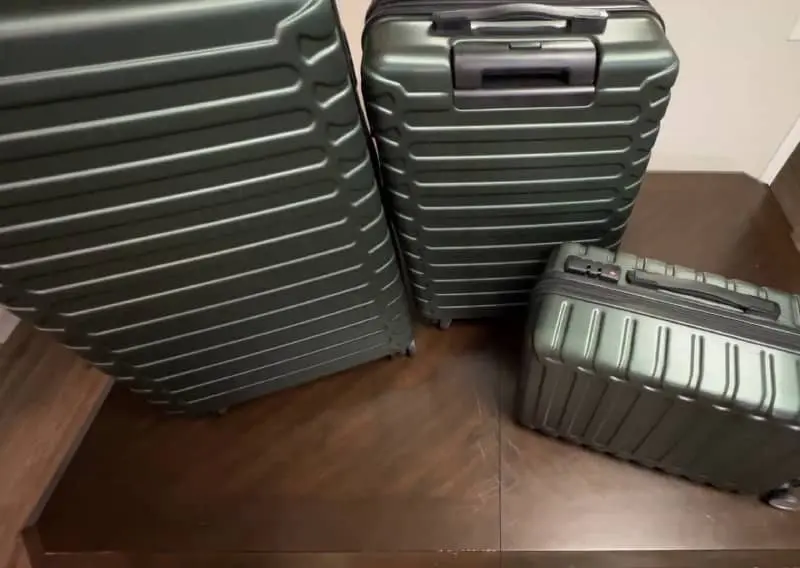
There are lots of factors that can indicate whether the ABS luggage you are about to buy is of poor or good quality. In fact, you can consider the following criteria when purchasing any suitcase:
- Brand reputation: Read customer reviews; they’ll give great insight into the brand’s products.
(E.g. with this set available on Amazon.com) - Durability: Examine the stiffness of the ABS shell; if it’s flimsy, it’s most likely low-quality.
- Security: See if the suitcase has a solid security system.
- Warranty: Select a suitcase that includes a legit warranty that covers defects.
FAQs
Is ABS the same as plastic?
ABS is a common thermoplastic, which is a type of plastic composed of polymer resins. This plastic is distinguished by its ability to melt when heated and harden when cooled.
Is ABS plastic high quality?
Yes, ABS is regarded as a high-quality plastic. It’s resistant to chemicals, heat, and water. It’s also harder and more long-lasting than regular plastics.
However, it’s not of the highest quality; for example, in the world of suitcases, polycarbonate wins.
RELATED:
Is Polycarbonate the Best Material for Your Next Luggage Purchase? Find Out Now!
Does ABS plastic crack easily?
ABS plastic is generally classified as a durable and impact-resistant material. However, when subjected to high impact or pressure, it becomes susceptible to cracking.
Prolonged freezing temperatures and UV exposure can also increase the risk of breaking.
Conclusion
So, is ABS luggage good? Overall, it is, but whether it’s suitable for you depends on your intended use and budget.
ABS suitcases are excellent value for money, and a good quality one will last you a long time. That said, I have to say, there are more durable materials on the market, but they come with higher price tags!
RELATED:
- Unbreakable Luggage: The Top 5 Most Durable Materials for Your Next Trip
- What Makes Polypropylene Luggage Material the Top Choice for Frequent Travelers?
- The Advantages of CURV Material Luggage: Say Goodbye To Heavy Suitcases!
Sources

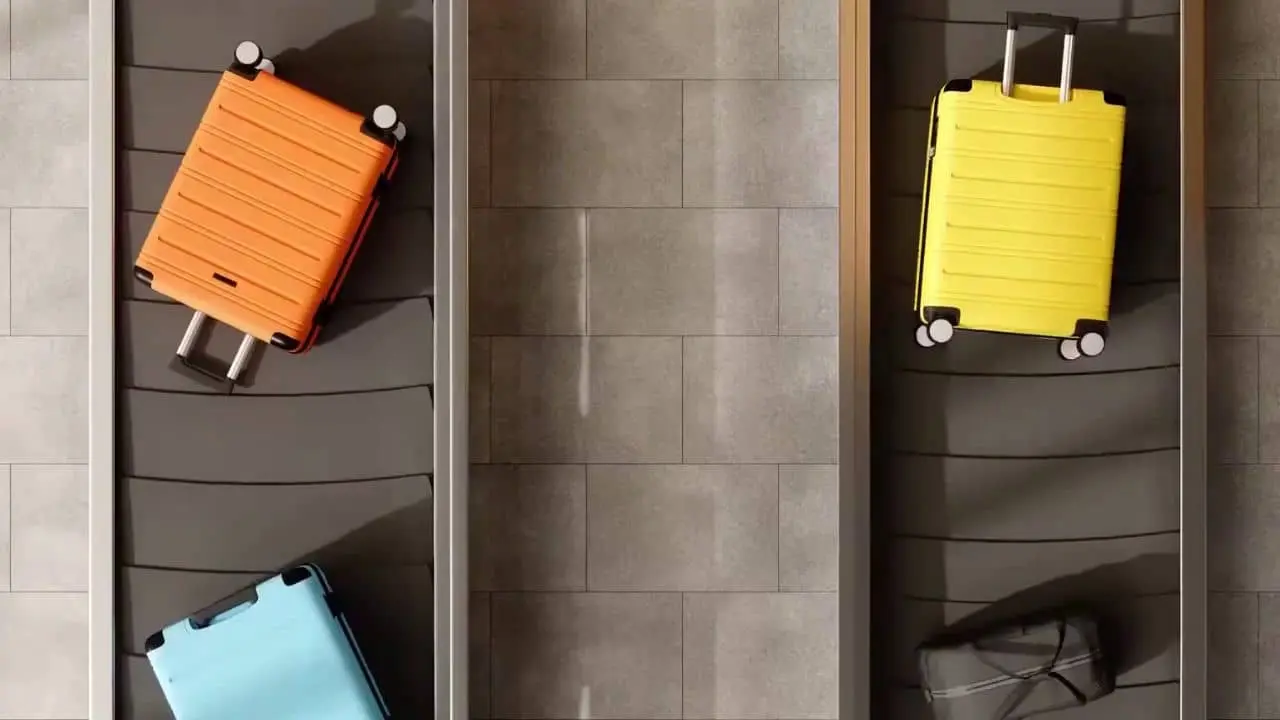
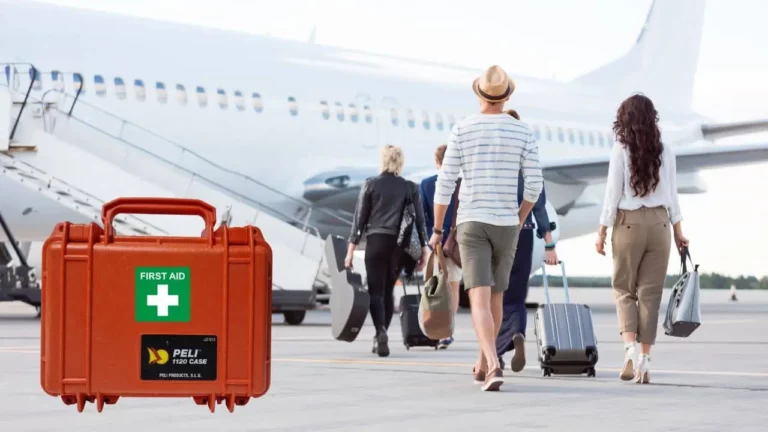
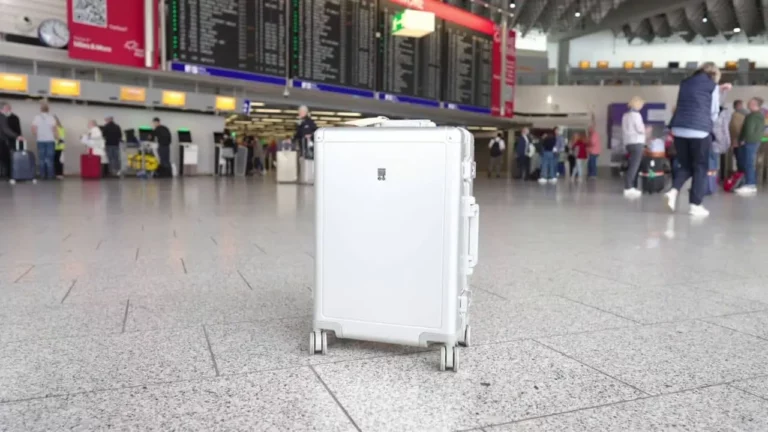

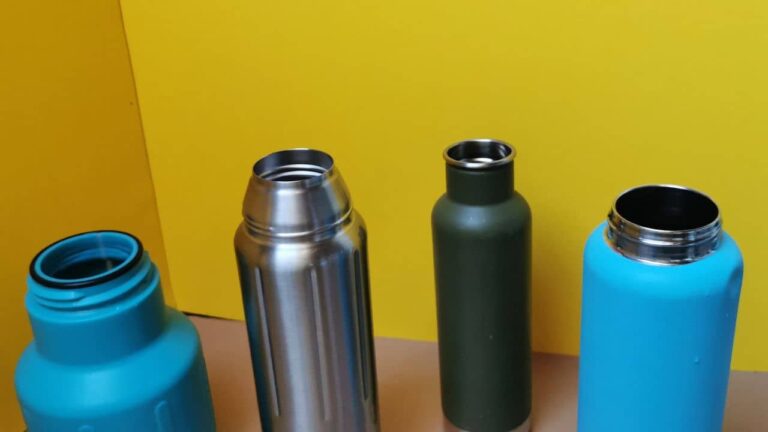
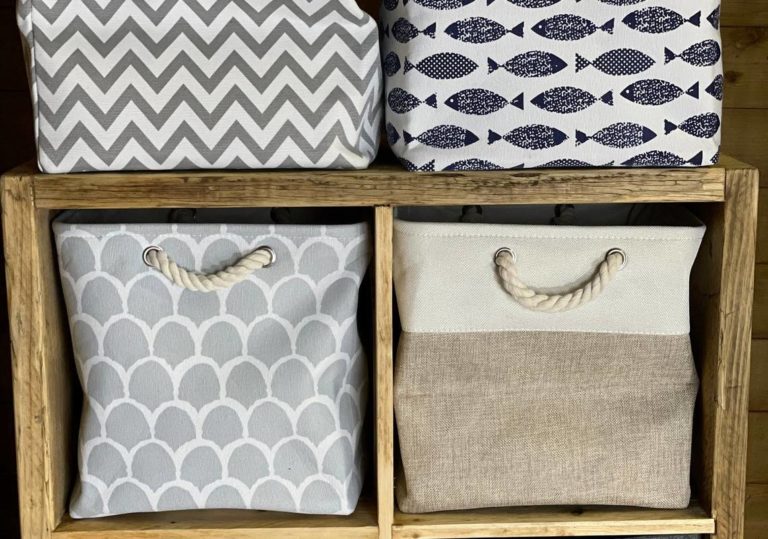
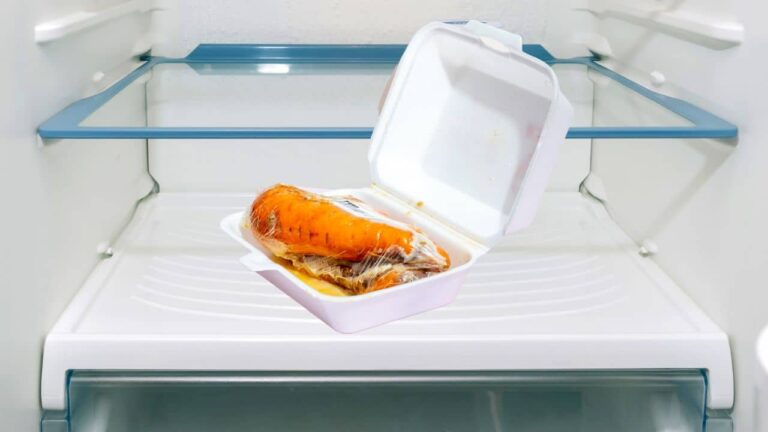
One Comment